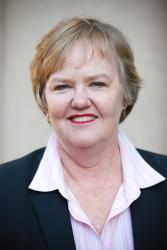

9:30 am EST - 11:00 am EST
Past Event
9:30 am - 11:00 am EST
1775 Massachusetts Ave., NW
Washington, DC
Most of the debate at the recent climate change conference in Durban, South Africa—the 17th Conference of the Parties to the United Nations Framework Convention on Climate Change or COP17—focused on the future of the climate change regime after the current Kyoto protocol expires. While not at the forefront of media coverage, COP17 also took important steps on the funding and planning of climate change adaptation activities.
On January 6, the Brookings-LSE Project on Internal Displacement hosted a discussion on the post-Durban way forward for climate change adaptation activities, including the Green Climate Fund, National Adaptation Plans and the Adaptation Committee. Panelists included: Andrew Steer, special envoy for climate change at the World Bank; Nancy Birdsall, president of the Center for Global Development; and Brookings Nonresident Fellow Nathan Hultman. With a focus on human mobility, panelists also discussed the potential impacts of these decisions on displacement, migration and planned relocation, as outlined in last year’s COP16 Cancun agreement. Senior Fellow Elizabeth Ferris, co-director of the Brookings-LSE Project on Internal Displacement, provided introductory remarks and moderated the discussion.
After the program, panelists took audience questions.


Elaine Kamarck
February 26, 2026

William A. Galston, Elaine Kamarck
February 25, 2026

Keesha Middlemass, Meilyn Farina
February 13, 2026